Traditionalists are pessimists about the future and optimists about the past
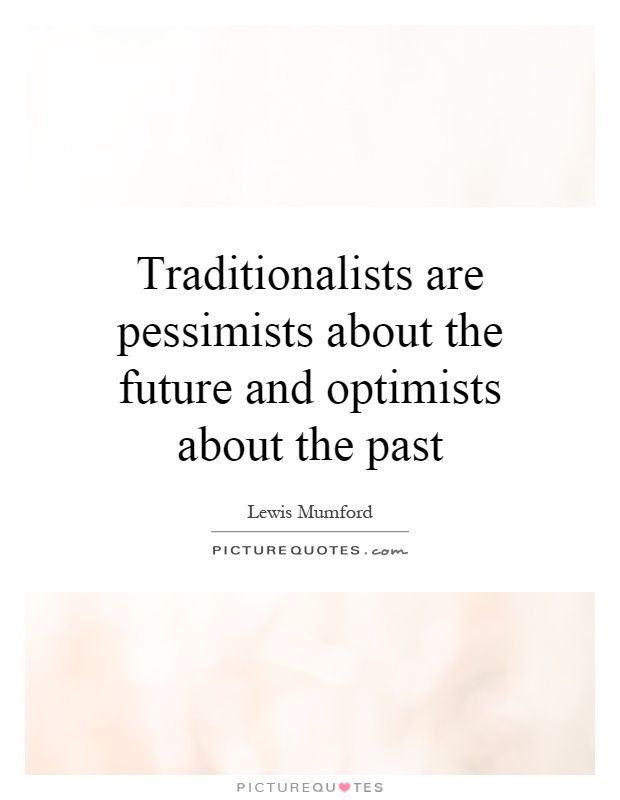
Traditionalists are pessimists about the future and optimists about the past
Lewis Mumford, a prominent American historian and sociologist, is often associated with the idea that traditionalists are pessimists about the future and optimists about the past. Mumford believed that traditionalists tend to romanticize the past and view it as a time of stability, order, and moral values, while they are skeptical and fearful of the rapid changes and uncertainties of the future.Mumford's views on traditionalism can be seen in his writings on the history of cities and civilizations. He argued that traditional societies, with their strong sense of community, shared values, and close connection to the land, provided a sense of security and continuity that is lacking in modern, industrialized societies. Mumford believed that traditional societies were more sustainable and harmonious, with a greater emphasis on human scale and the well-being of individuals.
In contrast, Mumford saw modernity as a time of rapid technological advancement, urbanization, and social upheaval. He was critical of the negative impacts of industrialization, mass production, and consumerism on the environment, human health, and social relationships. Mumford believed that the relentless pursuit of economic growth and technological progress was leading to the destruction of traditional values, communities, and ways of life.
Mumford's pessimism about the future was rooted in his concerns about the growing power of centralized authority, the erosion of individual freedoms, and the loss of cultural diversity and creativity. He warned that the increasing reliance on technology and mass media was leading to a homogenization of culture and a loss of human autonomy and agency.
Despite his pessimism about the future, Mumford was also an optimist about the past. He believed that traditional societies had much to teach us about living in harmony with nature, fostering community, and cultivating a sense of meaning and purpose in life. Mumford saw the past as a source of wisdom, inspiration, and guidance for addressing the challenges of the present and shaping a more sustainable and humane future.
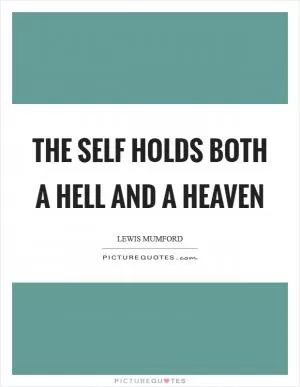

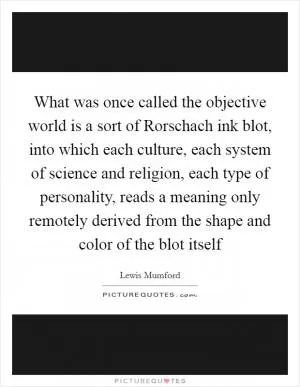

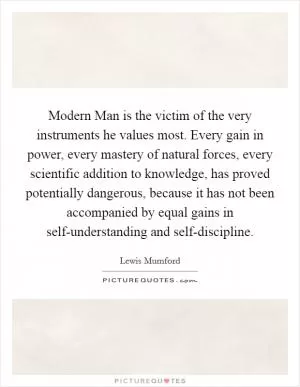

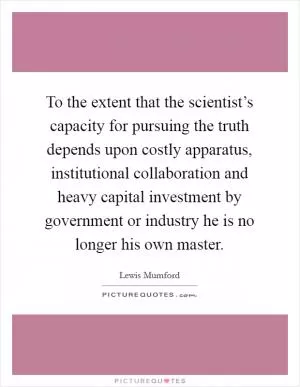


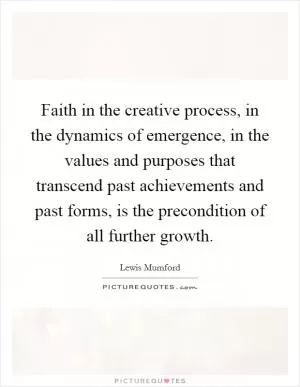


 Friendship Quotes
Friendship Quotes Love Quotes
Love Quotes Life Quotes
Life Quotes Funny Quotes
Funny Quotes Motivational Quotes
Motivational Quotes Inspirational Quotes
Inspirational Quotes